EUNAVFORMED “Irini” operation: constraints and two critical issues
Abstract
The war in Libya represents the main obstacle to stability in the Mediterranean area. While regional and international actors scramble for influence, the European Union and European states seem unable to revive the diplomatic path launched last January with the Berlin Conference and to prevent a looming humanitarian disaster just beyond the EU’s southern border (ISPI, 2020). As war persists in the North African country, factors such as weapons’ supply, illegal migration, drugs and human trafficking continue to affect the region and the south of Europe -including NATO’s border- and to impact on security in the area. EUNAVFORMED’s “Irini” operation aims at ending arms trafficking in Libya: but such goal is far from being achieved due to a lack of political cohesion and ineffective military capability.
Analysis by Claudio Bertolotti
EUNAVFORMED’s “Irini” operation: constraints and two critical issues
The Berlin Summit as a premise to the “Irini” operation
Participants at the Berlin Conference on Libya, which was held on 19th January 2020, committed specifically to fully respecting and implementing the arms embargo established by the United Nations Security Council Resolutions (UNSCR) 1970 (2011), 2292 (2016) and 2473 (2019). On 17th February 2020, the Council agreed to launch a new military operation in the Mediterranean, which would oversee the enactment of the embargo by means of aerial, satellite and maritime assets. In a break-through following months of negotiations, Greece confirmed its willingness to assist irregular migrants saved at sea by EU military ships, who would therefore not -at least formally- be sent over to an already hard-pressed Italy. This issue had previously stalled any tangible progress.
On 31st March 2020 Josep Borrell, the EU High Representative for Foreign Affairs and Security Policy announced an agreement over the creation of operation “Irini” (Greek for “peace”), an Italian-led mission with its operational centre in Rome. As well as supporting the implementation of the UN arms embargo on Libya, and in accordance with Resolution 2292 of the U.N. Security Council, the mission also entails the inspection of vessels navigating the high seas off the coast of Libya, assumed to be carrying weapons (or related material) to, and from, Libya; it also inherits some secondary tasks from its predecessor, EUNAVFORMED’s operation “Sophia”, including the training of the Libyan Coast Guard and Navy, and search-and-rescue duties.
the mission entails the inspection of vessels navigating the high seas off the coast of Libya, assumed to be carrying weapons to and from Libya
But up to now, “Irini” proved unable to achieve its primary goal, due to a fundamental political weakness brought about by the heterogeneous priorities set by EU countries, and to a limited military capability.
“Irini” ’s mission
On 30th March 2020, the European Council officially launched EUNAVFORMED’s “Irini” operation in the Mediterranean. Through the imposition of an arms embargo and a new military operation within the scope of the Common Security and Defence Policy (CSDP), the European Union is stepping up its efforts towards peace in Libya.
up to now, “Irini” proved unable to achieve its primary goal, due to a fundamental political weakness brought about by the heterogeneous priorities set by EU countries, and to a limited military capability
The main task assigned to EUNAVFORMED’s “Irini” consists in implementing the embargo by also inspecting vessels to and from Libya, which can be reasonably assumed to be carrying weapons (or related material) for belligerents; as well as gathering extensive and comprehensive information on the trafficking of arms and other military equipment and supplies by sea. As secondary tasks, EUNAVFOR MED “Irini” will also:
- monitor and gather information on illicit exports of petroleum, crude oil and refined petroleum products from Libya
- contribute to the capacity-building and training of the Libyan Coast Guard and Navy in law enforcement tasks at sea
- contribute to the disruption of the business model of human smuggling and trafficking networks through information gathering and patrolling by planes
“Irini” ’s mandate will initially last until 31st March 2021 and the operation will be performed under the close scrutiny of EU Member States, who will exercise political control and strategic direction through the Political and Security Committee (PSC) -in its turn under the responsibility of the Council and the High Representative of the Union for Foreign Affairs and Security Policy-. Unlike its predecessor “Sophia”, which operated in the Strait of Sicily, “Irini” shifted eastwards to patrol the waters between Egypt and Crete, with special attention payed to Cyrenaica.
A worsening situation: weapons keep reaching Libya
The internationalization of the conflict -its transformation from a civil war into a war by proxy- ensures that technologically-advanced military equipment continue to reach Libya by air, land, and sea. The fact that non-state armed actors in the country are pretty familiar with such weapons systems is a harbinger of danger for bordering countries as well: between 2012 and 2014, terrorists and separatist groups filled their arsenals with weapons belonging to the former Libyan army. These weapons could now cross into bordering countries, a number of which are increasingly struggling with insurgencies fueled by, among others, the so-called and dangerous as ever Islamic State (IS) and al-Qaida.
participants at the Berlin Conference on Libya committed to fully respecting the arms embargo established by the UN Security Council; according to the UN, the latter has since been broken by several participants
Against such background, the optimist attitude displayed at the Berlin Conference now seems unjustified, especially as according to the UN, the arms embargo has since been broken by several Summit participants, with planes landing at airports in both Eastern and Western Libya with their cargos of weapons, armored vehicles, foreign fighters, and military advisors. The UN Support Mission in Libya (UNSMIL, 2020) reported that “several among those who participated in the Berlin Conference” have been involved in the “ongoing transfer of foreign fighters, weapons, ammunition and advanced systems” and other military equipment (Kaim, Schulz, 2020).
From theory to practice: operational difficulties and political boundaries
“Irini” started its activities at sea on 4th May but, despite some initial confidence, it has since been marred by differences among EU members. Greek and French ships joined the mission at the end of May but Malta, which had pledged specially-trained on-board personnel, withdrew its participation in an apparent attempt at influencing the Libyan GNA and Turkey.
The mission currently operates with the Greek frigate “Spetsai” (Hydra class) and the French frigate “Jean Bart” (Cassard class); a small maritime reconnaissance aircraft made available by Luxembourg and Poland; a German P-3C Orion maritime patrol aircraft; and (as of July) the Italian ship “San Giorgio”. In August, Germany provided its “Hamburg” vessel -a Sachsen class frigate with a crew of 250 military personnel. Italy further contributes with a drone for surveillance operations and with the logistical bases of Augusta, Pantelleria and Sigonella, while a P72 maritime patrol aircraft, an Air early-warning aircraft (Aew) and a submarine “will occasionally be available in support” (Pioppi, 2020). According to its operational commander, the deployment will “soon be capable of reaching full operational capacity” (Pioppi, 2020): nevertheless, compared to its initial objectives, it suffers from very limited resources and its effectiveness is further undermined by poor political cohesion among the 27 European partners.
Turkey’s challenge to the European Union
On 10th of June 2020 the Greek frigate “Spetsai” (under Italian command) tried to approach Tanzanian-flagged mercantile ship “Cirkin”, which was being suspected of carrying weapons from Turkey to Tripoli. The maneuver was countered in the Gulf of Sirte by direct intervention of a Turkish military unit escorting the mercantile (Hassad, 2020). A second Turkish military unit apparently converged towards the Greek frigate after a Greek navy helicopter overflew the “Cirkin”. As soon as the Greek helicopter approached the “Cirkin”, it received a call from the Turkish frigate explaining that “the Turkish ship is under the protection of the Turkish Republic”. The Turkish official said that the Tripoli-based Government of National Accord (GNA) had not recognized “Irini”. A laser framing action on the part of the Turks -as a prelude to an escalation- is thought to have put an end to the situation by forcing “Spetsai” into retreat.
The “Cirkin” freighter, which entered the port of Tripoli on 11th of June (a day after the event), had set sail from the Sea of Marmara, south of Istanbul, after docking in a “roll-on roll-off” (RORO) port for a loadful of weapons, equipment and heavy vehicles, including armored vehicles hailing from a nearby military base of the Turkish army. The 4,000 tons, 100 metre’s long Turkish freighter was launched in 1980 and has previously been used by Ankara for shipping armored vehicles and other equipment to the GNA in Tripoli.
Greece denounced the incident -which would later re-occur with the French ship as well- as a blatant violation of the UN embargo; to which Ankara replied by underlining how, since the “Cirkin” enjoyed Turkish protection, the “Irini” intervention could in fact be deemed un-necessary. Turkey undeniably exposed the European operation’s critical issues; it also criticized its unilateral bias in favor of General Khalifa Haftar and further suggested the creation of a new mechanism by the United Nations (Hurriyet Daily News, 2020).
The incident, which did not make headlines outside Greece, testifies to the political -rather than operational- ineffectiveness of the European mission, which is supposed to be enforcing a military embargo on Libya; but as a matter of fact, does not seem to be able to control naval routes and to stop flows of weapons and other equipment from reaching General Haftar’s faction by land, from Egypt, and by air, from Russia.
the fact that the EU mission deals primarily with naval violations of the embargo raises questions about its effectiveness
“Irini” ’s two principal shortcomings
The fact that the EU mission deals primarily with naval violations of the embargo raises questions about its effectiveness. Military supplies reach the opposing Libyan factions from two directions: the western maritime border, used by Turkey to provide the GNA in Tripoli with weapons and fighters; and the eastern border, whereby Egypt and the United Arab Emirates send their support to Haftar’s LNA (al-Jazeera, 2020). As Egypt and the UAE are determined to take advantage of the situation, the Turks are left with no other option than supplying Tripoli with weapons across waters that are now being patrolled by the EU.
Turkish Foreign Minister Mevlut Cavusoglu recently complained that “the EU mission did not do anything to stop other powers’ shipments into Libya”, including what he alleged were “arms being sent by France to Haftar”. France, which denies supporting Haftar but has long been suspected of favoring him, voiced its fury last month after alleging that the French ship “Courbet” was subjected to laser framing by Turkish frigates’, while inspecting a mercantile en route to Libya (al-Jazeera, 2020).
Italian Foreign Minister Luigi Di Maio addressed the issue as well by specifying that “Irini” “is not a naval blockade. The international regulatory framework includes the naval blockade as a method of war. Therefore, the blockade is a measure that can only be adopted during international armed conflicts. “Irini” envisages measures which must be selective, legitimate and fully respectful of international law, and aimed at promoting the return of peace and security in Libya “(Di Feo, 2020). Di Maio’s statement implicitly upholds the operation’s structural limitations, which clearly emerge in the form of two main criticalities.
the absence of a jurisdictional framework for States to operate in Libya or bordering nations, allows countries wanting to flout the arms embargo, to directly supply weapons to the conflicting parties by land, sea and air
One of the weak points of the arms embargo on Libya consists in its implementation. States’ and EU actions are restricted to enforcing the arms embargo at sea. Initially, the Security Council had only called upon States to inspect all cargos to and from Libya “in their territory, including at seaports and airports”, should they possess information providing reasonable grounds to believe that those cargos contained arms. The absence of a jurisdictional framework or authorization for States to act outside their own territory and to operate in Libya or bordering nations, allows countries wanting to flout the arms embargo, to directly supply weapons to the conflicting parties by land, sea and air.
The second criticality resides in the option of extending monitoring activities to Libya’s land borders, which involves having “boots on the ground” EU military personnel, but only in the event of a request from local authorities. If up to very recently, an agreement on this issue between General Khalifa Haftar in Tobruk and Tripoli government’s chairman Fayez al-Serraj seemed utterly unlikely, the truce which was announced on 21st August 2020 by al-Serraj and Aguila Saleh (spokesperson of the Chamber of Representatives in Tobruk) could open a different scenario (and al-Serraj’s apparent intention of leaving office at the end of October also adds to the picture[1]). Currently though, without any Security Council authorization or consent on the part of the Libyan authorities, the EU cannot conduct any aerial surveillance activities within Libyan airspace, let alone stem the supply of weapons by air or enforce the arms embargo on the ground in Libya. As most of the weapons destined for General Haftar’s forces are being transported by land or air, a stricter enforcement of the arms embargo at sea comes at the expense of the Libyan Government of National Accord, which receives most of its supplies from Turkey via the sea route.
One might question whether the EU operation will be any more than symbolic, as EU member States are not likely prepared to commit all the naval and surveillance assets which are required to effectively enforce the arms embargo.
Analysis, assessment, forecast
Despite the UN arms embargo, Turkey signed a military cooperation deal with the GNA and sent drones, armored vehicles, Syrian mercenaries and military officers to support al-Sarraj against the forces of eastern-based commander, General Khalifa Haftar. Ankara’s support affected the balance on the ground, forcing Haftar’s Libyan National Army to retreat from the west of the country following an unsuccessful attempt at capturing Tripoli; an attempt which turned into an exhausting one-year siege.
It is clear how current rules make it impossible to stop weapons’ shipments from Turkey, while the latter consolidates its position and role in Tripoli. As a sign of this, Ankara was assigned the port of Misurata in a move which saw the simultaneous removal of Italy from the same area.
“Irini” should essentially consist in a deterrent barrier; however, due to its shortcomings in countering embargo violations, such deterrence inevitably fails and Europe cannot but acknowledge, at most, Turkey’s commitment to war, and its success in Libya.
Due to a lack of control on land, sea and air routes, the overall impact of “Irini” is currently marginal. The mission will only be successful in so far as it is inscribed into a broader strategy which needs to be clearly defined and better implemented.
As recently suggested by ECFR (European Council for Foreign Relations), Italy should grab the opportunity offered by the German presidency of the EU Council to initiate a platform from which -together with allies- to enforce international norms on the conflict; broker among international competitors who have an interest in ‘feeding’ a war-by-proxy; enable a new UN conference on Libya. An engagement in this direction would jeopardize Russia’s attempt at protracting the conflict and possibly fill the vacuum generated by Turkey, Egypt and the UAE, who are supporting opposing sides.
due to a lack of control on land, sea and air routes, the overall impact of “Irini” is currently marginal. The mission will only be successful in so far as it is inscribed into a broader strategy
The recent UN Security Council resolution 2473 (2019) in support of operation “Irini” can be seen as a useful stepping-stone towards bolstering a European political vision able to turn into diplomatic and military action and initiative. EU member States should launch a real, impartial and balanced operation based on a shared strategy, which would concretely fulfill the Berlin Conference’s commitments. In order for this to be achieved, the embargo must necessarily be extended to include air and land, rather than being restricted to patrolling sea routes (Varvelli and Megerisi, 2020).
[1] On 15th September 2020, al-Serraj apparently announced his intention to leave his post at the helm of the GNA by the end of October.










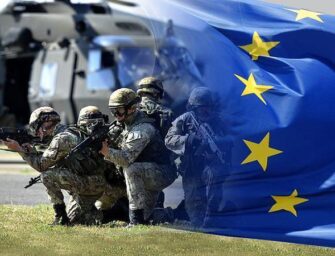






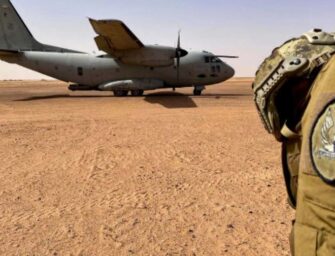

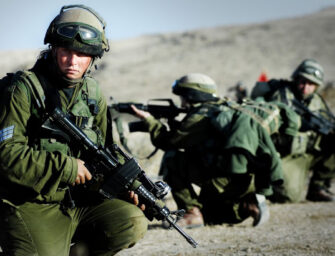



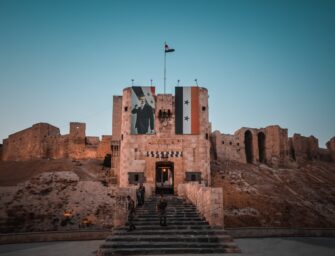



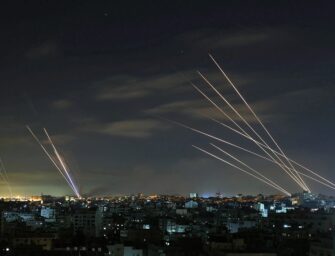


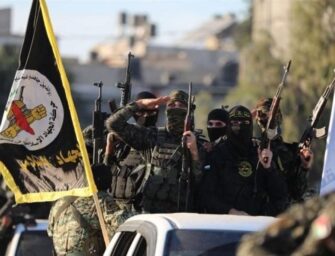
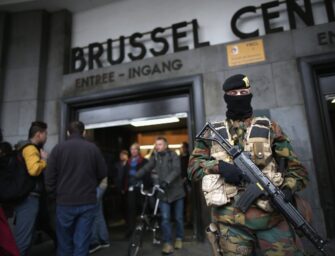
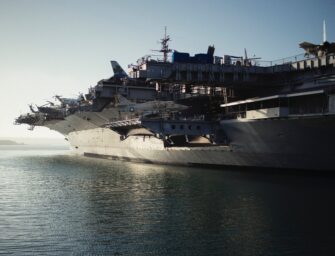
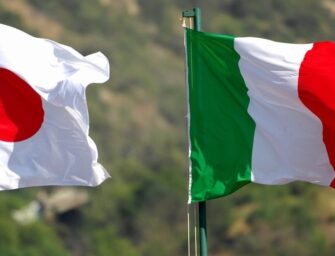


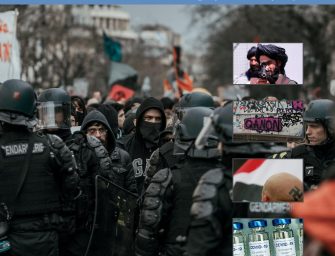
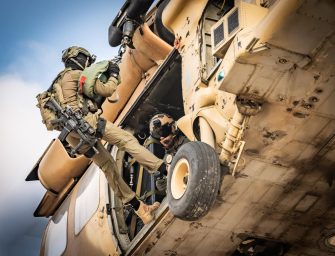
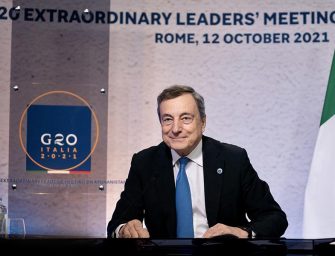



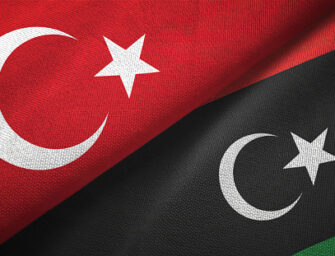
There are no comments
Add yours